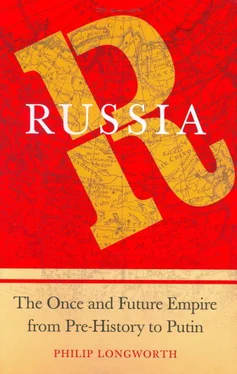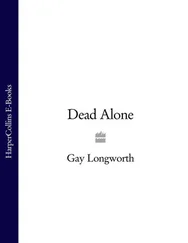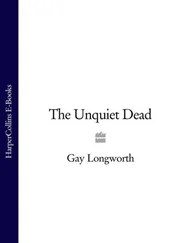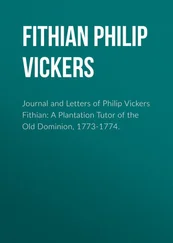At last Blind Vasilii ruled unchallenged. But Muscovy was in a debilitated condition, and he was heavily dependent on the Church to exert moral pressure on political dissidents, even to threaten them with excommunication (as it had threatened Dmitrii in 1447). Smooth transfers of power could not be expected, and it became his urgent priority to establish a succession to his throne that would be regarded as legitimate. The recent civil wars had shown that claims based on genealogy could still be backed by force, and cities like Pskov, Tver and Novgorod could still assert themselves against Moscow. Besides, in theory at least, the Khan still decided who the Grand Prince was to be, granting him legitimacy with the issue of his yarlyk, his licence to rule. However, Vasilii’s chancery had a strategy which it implemented with vigour.
It made great strides in claiming back apanages. It bought some, and took others by force, but that still left princes and cities which hankered after a remembered independence and bygone privileges. Determined to reinforce his power, which had been so much eroded, Vasilii did not spare those who stood in his way. Cities that had supported his enemies were punished. Novgorod was disciplined; compelled for the first time to use the Grand Prince’s insignia in its official correspondence, and to swear never to enter into relations with foreign powers on its own initiative, it was also forced to pay a sizeable indemnity. A new prince of Pskov, which had hitherto been neutral, was forced to swear an oath of loyalty to the Grand Prince as well as undertaking to uphold the customs of Pskov. By 1460 Pskov was referring to itself as Blind Vasilii’s ‘hereditary property’ (otchina), addressing him as ‘Sovereign’ (Gosudar’), and pledging loyalty not only to him but to his descendants. 26Following the precedent set by Grand Prince Iurii Danilovich, who had annexed Mozhaisk in 1303, a Muscovite governor was imposed on it. In the same way the Principality of Tver became an hereditary property of the Grand Prince. The Principality of Riazan was also annexed. In effect all princely rights were becoming subject to the Grand Prince’s will.
The brisk way in which these measures were taken suggests that policies were already in place, awaiting the opportunity to implement them, and that the Grand Prince had enough trained functionaries ready to carry them out. Policy was formulated by the blind ruler’s executive council, or durna, consisting of five or six boyars — experienced executives drawn from the ranks of the princes, like I. Iu. Patrikeev, or untitled servitors, like F. M. Cheliadnia. 27But implementation depended on a cadre of literate and numerate functionaries from the subjected principalities themselves and on servitors of former enemies as well as on the Grand Prince’s own staff. This can be safely inferred from our knowledge of the reign of Blind Vasilii’s son and successor, Ivan III, who was to continue the work. So the Grand Prince began to interpose himself between the subject princes and their people. A quasi-feudal, hierarchical ruling structure was beginning to give way to a more direct and absolutist regime. 28
To the extent that the new governmental trend cut across traditional vested interests, it was unpopular; but society was tired of civil war, and Vasilii’s strict regime promised to end it. The new metropolitan, Jonah, backed these policies to the hilt. The Church felt besieged and in particular need of the Grand Prince’s support. Jonah had been installed by the Russian bishops, without reference to the Patriarch of Constantinople. This was an alarming breach of precedent, but the circumstances were extraordinary. It was generally recognized that Constantinople must soon fall to the Turks. Besides, most Russians were convinced that the senior patriarch, who had supported the Council of Ferrara/Florence had fallen from the faith. The installation of Metropolitan Jonah, therefore, signalled the independence of the Russian Church, but also isolated it. Furthermore, largely Orthodox Lithuania and Catholic Poland, united by a dynastic marriage in 1386, had begun to merge politically after the Treaty of Horodlo of 1413, and on terms which discriminated against non-Catholic nobles and gentry.
Vasilii was also helped by the break-up of the Golden Horde, creation of the Tatar khan, into the separate Tatar khanates of Kazan, Astrakhan, Siberia and the Crimea. The threat from Tatar raiders hardly diminished, but the possibilities of managing the problem by diplomatic as well as military means became greater. Now that the Tatars were in decline and the Golden Horde had split, they could no longer dictate who the grand prince was to be, and henceforth grand princes tried to assert their independence by seeking an additional, more impressive, title. They also began not only to nominate their chosen successors, but also to adopt the long-standing Byzantine practice, by which an emperor would co-opt his successor with him. In 1448 Vasilii the Blind co-opted his son, the future Ivan III, into government with him, formally investing him as co-ruler.
As well as striving to establish a legitimate succession, the grand princes had for some time been trying to bequeath incontestable title to their territories as personal property, and to eliminate the titles of lesser princes to their apanages. They went so far as to claim to have purchased lands they had in fact conquered, and willed their titles to their sons, hoping to secure the succession and inheritance of their property down the generations. Vasilii II succeeded in eliminating almost all apanages, though he also created new ones for his own offspring. The historian A. E. Presniakov argued that in the last resort Vasilii survived not because of any formal powers but thanks to the popular support he received. But Vasilii was aggressive, and the people expected him to be aggressive; the interests of the grand princes and their subjects happened to coincide. Such, implicitly, was the judgement of Liubavskii too. He attributed Moscow’s success to power rather than territory — the grand princes’ strengthening hold over the military class, their command of taxation resources and of landed assets. 29But it was civil war which inspired the rise of Moscow and, according to some, the inception of the Russian autocracy.
Russia’s political fractiousness in the period was paralleled in many other parts of Europe. England was riven by the Wars of the Roses for longer than the Russians were by their civil wars, and the states of Italy seemed to be locked in almost perpetual struggles. Petrarch had regretted Italy’s lack of unity a century earlier, and the hard political advice that Machiavelli was to give in the century following was born of the bitter experience in the interim. Russians were exercising their minds about the problem too. Indeed, within a few decades, under Ivan III, they were to develop a more durable political entity in Moscow than the more brilliant Lorenzo de’ Medici was to build in Florence, and begin to flex their muscles in a wider world.
4
The Foundation of an Empire
RATHER THAN STRIVING for an imperial role, Muscovy stumbled into one. The impetus came from the fall of Constantinople to the Turks in 1453. This long-expected but none the less traumatic event was immediately interpreted by the Russian bishops as a punishment for apostasy -Constantinople’s dalliance with the Pope at the Council of Ferrara/ Florence. The work of legitimizing Russian imperial power began at that point, and again churchmen took the lead. The Legend of the White Cowl, suggesting that Moscow had become the seat of true Orthodoxy in religion, and the idea of Moscow as the ‘Third Rome’, the new capital of the Roman Empire, were both elaborated in monastic think-tanks. However, there was also a more tangible kind of transfer from Constantinople to Moscow: both before and after 1453, Greek refugees trickled in. They included churchmen, noblemen, artists and functionaries of every sort, and they brought with them the diplomatic, administrative and military expertise essential to the building of empires.
Читать дальше





![Stephan Orth - Behind Putin's Curtain - Friendships and Misadventures Inside Russia [aka Couchsurfing in Russia]](/books/415210/stephan-orth-behind-putin-s-curtain-friendships-a-thumb.webp)





